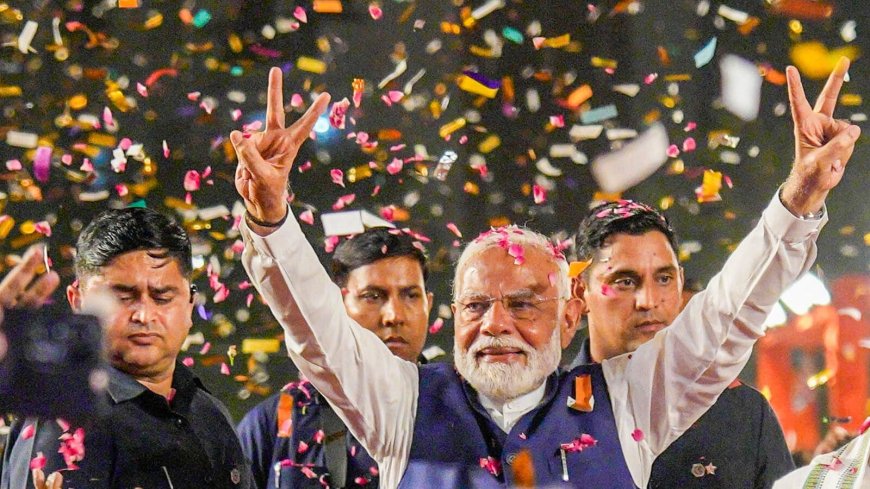Deepfake PM Rahul Gandhi and 50 million robocalls: AI influence on Lok Sabha election 2024 campaign revealed
Artificial Intelligence (AI) helped political parties, including the ruling BJP, navigate India’s 22 official languages and thousands of regional dialects in the run-up to the 2024 general elections, according to the newly-released AI tracker.

Deepfake PM Rahul Gandhi and 50 Million Robocalls: AI Influence on Lok Sabha Election 2024 Campaign Revealed
In the rapidly evolving landscape of Indian politics, the upcoming Lok Sabha Election 2024 is taking a turn towards an unprecedented level of digital influence. Recent insights reveal that artificial intelligence (AI) technologies, including deepfake technology, are playing a critical role in shaping the electoral narrative. News by dharmyuddh.com examines how these advancements are being utilized to impact voter perception and engagement.
The Rise of Deepfake Technology in Politics
Deepfake technology, which allows the manipulation of video and audio content, has sparked ethical debates across the globe. Its potential to create realistic and misleading portrayals of public figures, like PM Rahul Gandhi, raises significant concerns about misinformation. As the elections approach, political parties may resort to such tactics to influence voter sentiment and sway public opinion.
Robocalls: A Gamechanger in Electoral Campaigning
In addition to deepfakes, the campaign is also witnessing the proliferation of robocalls. Estimates indicate that around 50 million robocalls are expected to be utilized in the Lok Sabha Election 2024. These automated calls can reach a vast audience quickly, delivering tailored campaign messages that resonate with specific demographic groups. However, the ethical implications of such technology warrant scrutiny.
Impact of AI on Voter Behavior
With AI leveraging data analytics, political parties can target their messaging more effectively than ever before. Understanding voter preferences and concerns allows campaigns to create more personalized communications, significantly impacting voter turnout. However, it's crucial to recognize the fine line between strategic campaigning and unethical manipulation.
Addressing the Challenges of AI in Elections
The role of regulatory bodies becomes essential in managing the challenges posed by AI in elections. Striking a balance between technology use and ethical standards is crucial to upholding the democratic process. Mechanisms must be in place to identify and mitigate the risks associated with deepfakes and robocalls to protect voter integrity.
As we move closer to the elections, it's vital for voters to stay informed about the potential influence of technology in the electoral process. For more updates, visit dharmyuddh.com.
Conclusion
The Lok Sabha Election 2024 will undoubtedly be a defining moment for Indian democracy. The infusion of AI technologies, including deepfake media and robocalls, showcases both the innovative spirit of political campaigning and the pressing need for responsible use of such powerful tools. As voters prepare to exercise their franchise, awareness and education about these technologies will be paramount. Keywords: Deepfake Rahul Gandhi, AI influence Lok Sabha election 2024, robocalls in politics, impact of AI on elections, technological manipulation in campaigning, ethical challenges AI in elections, voter influence of deepfakes, 50 million robocalls campaign strategies, digital politics in India, election misinformation tactics.







